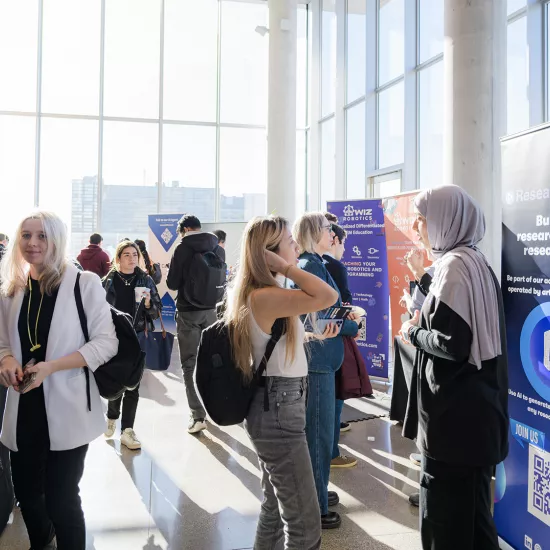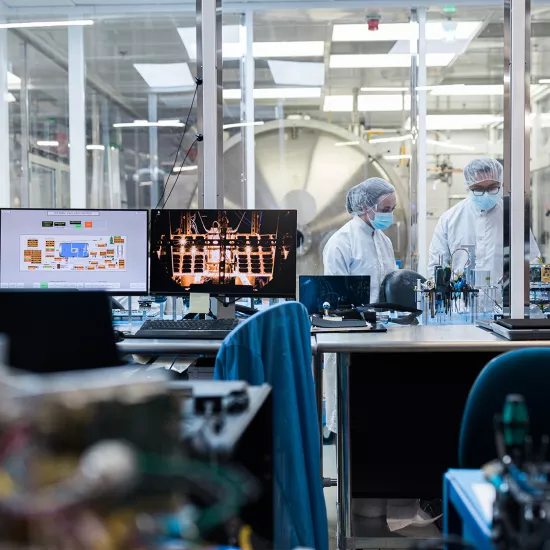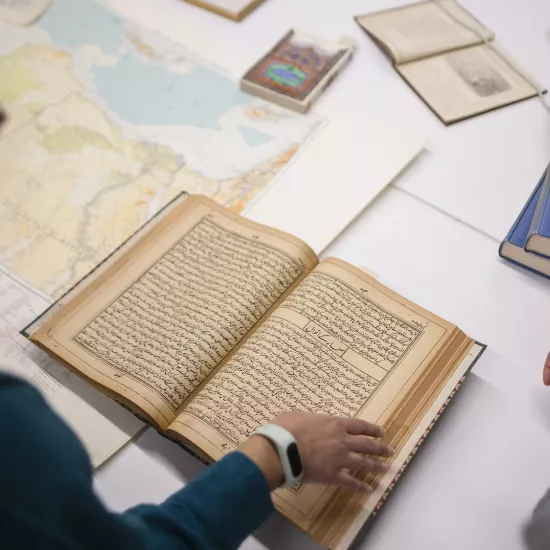UTM team wins wearable sports tech competition

A team of computer science students from U of T Mississauga and U of T has captured the top prize at SportsHack, a competition to develop wearable sports technology.
With their “Player Tracking System,” the five-member group, Team Raisins, impressed former Dragon’s Den dragon Bruce Croxon, winning the $7,500 cash prize and a chance to work with investors to turn their sports hack into reality.
The 36-hour event, which took place Nov. 14 to 16 at the former Maple Leaf Gardens, saw 19 teams racing to develop a sports-themed application to work with one of the featured devices provided by wearable tech companies. The event was sponsored by IBM and We Are Wearables, an organization dedicated to promoting wearable technology.
Team Raisins sought a way to accurately track data on the physical positions of players on the field over the course of an entire game. But they wanted to make the data collection cost-effective and quick to upload for analysis.
The result is the Player Tracking System, an app that tracks the location of players on a field and displays the data as a heat map. The program uses a $250 Moto360 watch (worn by players) to “talk” to small $25 Onyx iBeacons stationed around the perimeter of the field. The location data uploads with an IBM Bluemix web server and is plotted on the map.

“We could sell this information to coaches, players, viewers or big broadcasters,” says Silva. “Fans could subscribe to see how their favourite players are doing, and coaches could use the data to improve play and find patterns of weakness in opposing team’s strategies.”
The team used a soccer field as an example, but the software could be adapted for use on a variety of sports fields, rinks and courts.
The SportsHack teams pitched their devices to a series of judges who assessed the ideas according to uniqueness, creativity, and commercial potential. Judges included Spabbit founder and app developer James Gibbons; Dr. Hossein Rahnama, research and innovation director for the Ryerson’s Digital Media Zone, Graham Churchill from IBM Canada and Bruce Croxon.
“What the judges liked best about our idea was the commercial potential,” Silva says. “Anyone can buy the hardware,” adds Melo. “But we could sell the data to fans who could see it in real time, to coaches to correct the players, to players so they can see how they are personally performing, or even to broadcasters.”
Silva says the SportsHack event was a valuable learning process, too. “We learned how to take the idea and turn it from a problem into a solution we could prove really works. We also learned how to get the attention of the people we were talking to.”
The competition comes at the end of an eventful year for the group. The UTM members of Team Raisins are part of a group of 87 Brazilian students attending UTM as part of the Ciencia Sem Fronteiras (Science without Borders) program. The program provides fully funded merit-based scholarships to Brazilian students to study science, technology, engineering and mathematics (STEM) for up to 16 months at universities internationally. Silva and Melo will return to Brazil in the new year.
“We came to Canada to learn new things and bring this knowledge back to our country,” said Melo. “We have never been to a hackathon in Brazil. This is a huge opportunity for us and every other student that comes on exchange.”
Melo says camaraderie was key to the team’s success. “If you have good people to work with, even with just 36 hours, you can build something good.”
Members of the winning team included Kevin Zhu (U of T) and Brazilian exchange students Rafael Melo (University of Sao Paulo), Higor Silva (Federal University of Uberlândia), Nelson Nauata (University of Campinas), and Felipe Oliveira (University of Campinas). Runners-up included U of T’s Team Kanu, who created an an app that captures rowing data with a special glove worn during exercise.



